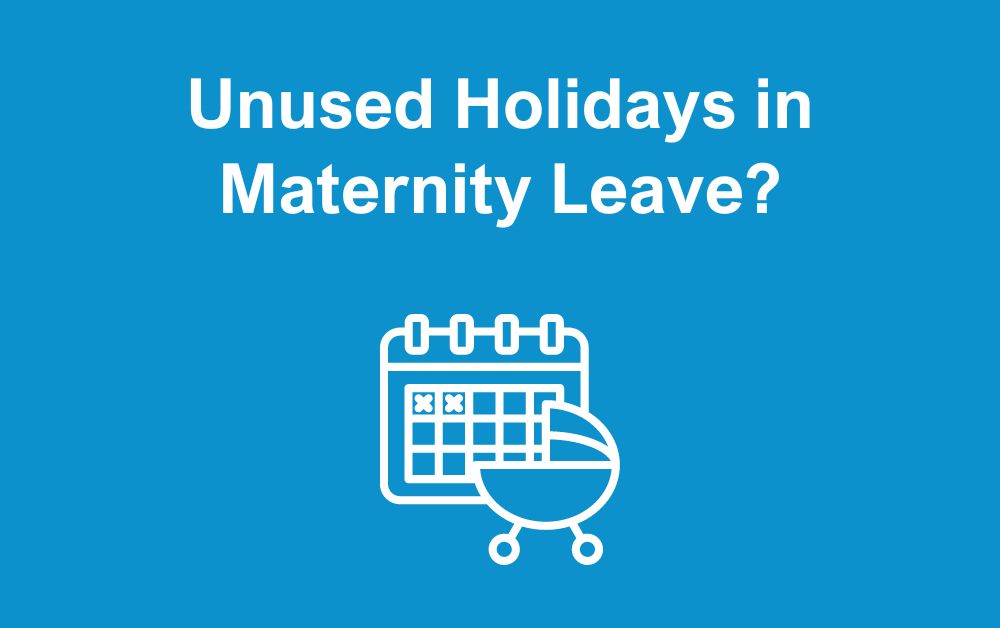Maternity Leave is a significant and transformative period in the life of an employee, marked by the job of welcoming a new family member. However, it also raises questions about work-related matters, such as accrued statutory holiday entitlements. In this comprehensive blog post, we will delve deep into the topic of whether employees should be allowed to carry over unused statutory holiday when they cannot take it due to maternity leave. We will explore the legal aspects, practical considerations, and the implications for both employees and employers.
Maternity Leave and Statutory Holiday
Maternity Leave is a unique situation where an employee takes an extended leave of absence to give birth, bond with their new-born child, and adapt to the demands of motherhood. During this period, employees are still entitled to accrue statutory holiday, just as they would if they were actively working. However, the challenge arises when an employee cannot use their accrued statutory holiday due to the timing of their maternity leave.
To answer your question, yes, employees can carry over unused statutory holiday entitlement if they are unable to take it due to being on maternity leave. Therefore, as an employer, you must allow your employees to carry this over to the next year. The Working Time Regulations 1998 which was updated in January 2024 states that employees can carry over their full 5.6 weeks’ holiday in to the next year if they are unable to use it in the current year due to being on any family leave.
It’s important to note that the right to carry over statutory holiday during maternity leave is not an option but rather a legal requirement. Employers must comply with this regulation to avoid potential legal issues, including claims of discrimination or unfair treatment.
Understanding Statutory Holiday Entitlement
In the UK, understanding statutory holiday entitlement is crucial for both employers and employees to ensure compliance with employment laws. Full-time employees are entitled to a minimum of 28 days of paid annual leave, which can include the UK’s eight public holidays, depending on the terms of the employment contract.
Part-time workers have their leave entitlement pro-rated, ensuring fairness across different work patterns. This statutory entitlement is designed to promote work-life balance, allowing individuals to rest, spend time with family, or pursue personal interests. Employers must manage this entitlement transparently, often through written terms and conditions of employment, to avoid disputes and maintain a positive working environment. It’s important for both parties to be aware of any sector-specific variations or enhancements to these basic entitlements that may apply.
Practical Considerations
While the law mandates the carryover of unused statutory holiday during maternity leave, it’s also essential to consider the practical aspects of this situation. Employers should have clear policies and procedures in place for employees to request and schedule their holidays, even when they are on maternity leave. Effective communications between the employer and employee can help ensure that both parties are aware of their rights and responsibilities.
Policy Development: Employers should develop and communicate comprehensive policies that outline the procedure for requesting holiday carryover during maternity leave. These policies should also clarify the timeline for requesting carryover and the documentation required.
Documentation: Employees should be encouraged to provide appropriate documentation, such as medical certificates or maternity leave confirmation, to support their request for holiday carryover. This documentation helps establish a clear record of the situation.
Communication: Employers should maintain open lines of communication with employees on maternity leave, ensuring that they are aware of their holiday entitlement and the process for requesting carryover.
Flexibility: Employers may need to be flexible in accommodating the specific needs and preferences of employees on maternity leave. This can include allowing holiday carryover into the subsequent year or providing the option to use accrued holiday days when returning to work.
What happens pensions during maternity leave
In the UK, during maternity leave, employees’ rights to pension contributions continue under the terms of their employment contract. For the period of paid maternity leave, employers are required to continue making pension contributions based on the employee’s normal salary, even though the employee may be receiving reduced or no pay. The employee’s contributions will be based on their actual maternity pay received. This ensures that taking maternity leave does not negatively impact an employee’s pension accrual, safeguarding their long-term financial security. However, specific terms can vary depending on the employer’s pension scheme and the employment contract, so it’s advisable for employees to review their policies.
Employees on maternity leave must be provided with the same benefits as they would if they were at work.
In Conclusion
Maternity leave is a crucial period for employees, and it’s essential for employers to support and accommodate their statutory holiday rights as part of a holistic approach to employee wellbeing and work-life balance. By adhering to the law and implementing practical policies and communication strategies, employers can create a supportive and inclusive work environment that empowers employees during this significant life transition. Ultimately, fostering a positive relationship between employers and employees during maternity leave contributes to a happier and more productive workforce in the long run.
How we can help
At The HR Booth, we are dedicated to assisting employers in navigating the complexities of maternity leave, ensuring both compliance with legal requirements and the support of their employees during this significant life event. Our team of HR experts can provide tailored advice on every aspect, from understanding statutory maternity pay and leave entitlements to implementing best practices for communicating with employees before, during, and after their leave. We can help you develop and review maternity policies, offer guidance on managing leave requests and cover arrangements, and ensure that you are up-to-date with the latest legislation. Our aim is to answer any questions you may have and to provide solutions that benefit both your business and your employees, fostering a positive and supportive workplace culture.







